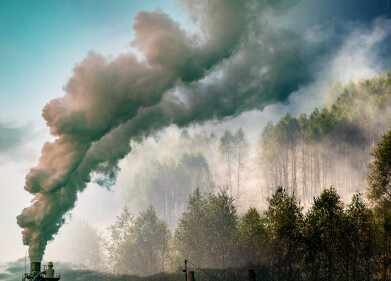Fuel for thought
Global plastic treaty collapses over clause to reduce production
Nov 28 2024
The long-awaited global treaty to tackle plastic pollution has failed to materialize after more than two years of negotiations, with the final session in Busan, South Korea, ending in gridlock.
Delegates from over 200 nations gathered in what was meant to be the decisive fifth round of talks, but sharp divisions—particularly over a proposed cap on plastic production—proved insurmountable.
Plastic pollution has become one of the most pressing environmental issues of our time, threatening ecosystems, human health, and livelihoods.
How a clause to reduce production ended negotiations
Tensions erupted over whether or not the treaty should commit signatories to reducing plastic volumes or only recommend increased rates of recycling.
A coalition of nearly 100 so-called ‘high ambition' countries, including the UK, the European Union, and the African Group, supported the former measure.
In contrast, oil-producing nations like Saudi Arabia, Kuwait, and Russia opposed restrictions on plastic production, arguing it would harm their economies and thereby, infringed on their right to development.
Will negotiations resume at a later date?
The World Wide Fund for Nature (WWF) and other organizations have urged the high-ambition coalition to consider moving forward with a treaty independent of the opposing nations.
UN Secretary-General António Guterres is fully behind the idea of a treaty that is "ambitious, credible, and just," urging negotiators to seize this opportunity.
Nations are expected to reconvene next year, but with no clear path to consensus, the future of a legally binding global plastic treaty remains uncertain.
Why is a global plastic treaty needed?
Since 1950, over nine billion tons of plastic have been produced, with less than 10% recycled. This has resulted in millions of tons of plastic entering the oceans annually, posing grave risks to marine ecosystems and human health.
Without intervention, plastic production could rise by 70% by 2040, with the amount of plastic entering oceans expected to triple.
Ghana’s lead negotiator, Sam Adu-Kumi, highlighted the devastating impact of plastic waste in his country, from clogged waterways to toxic fires at dumping sites.
How plastic pollution exacerbates inequality
The Pacific Islands have consistently pushed for stronger interventions as they are among the areas hardest hit by plastic pollution.
Human rights experts have warned that without explicit protections, those that contribute the least to plastic waste will suffer the most from its proliferation.
Measures such as mandatory producer contributions to a global fund and safeguards for waste pickers—who collect 60% of recycled plastics globally—are seen as essential to ensuring a fair and just transition.
Digital Edition
PIN 25.5 Oct/Nov 2024
November 2024
Analytical Instrumentation - Picturing Viscosity – How Can a Viscometer or a Rheometer Benefit You? - Sustainable Grease Formulations: Evaluating Key Performance Parameters and Testing Method...
View all digital editions
Events
Jan 20 2025 San Diego, CA, USA
Jan 22 2025 Tokyo, Japan
Jan 25 2025 San Diego, CA, USA
SPE Hydraulic Fracturing Technology Conference and Exhibition
Feb 04 2025 The Woodlands, TX, USA
Feb 05 2025 Guangzhou, China



















